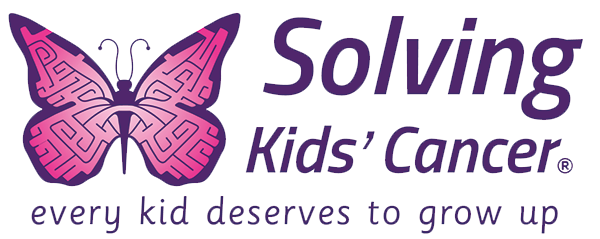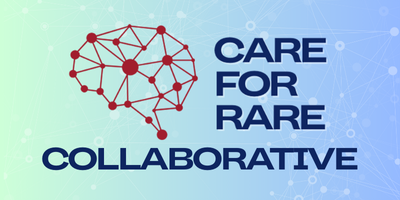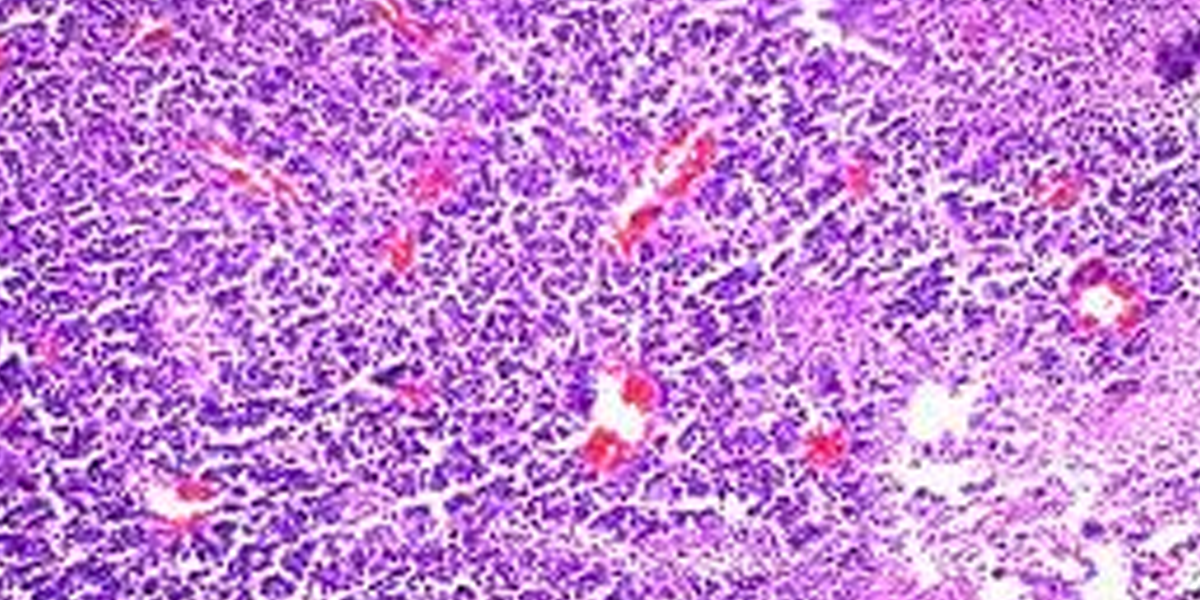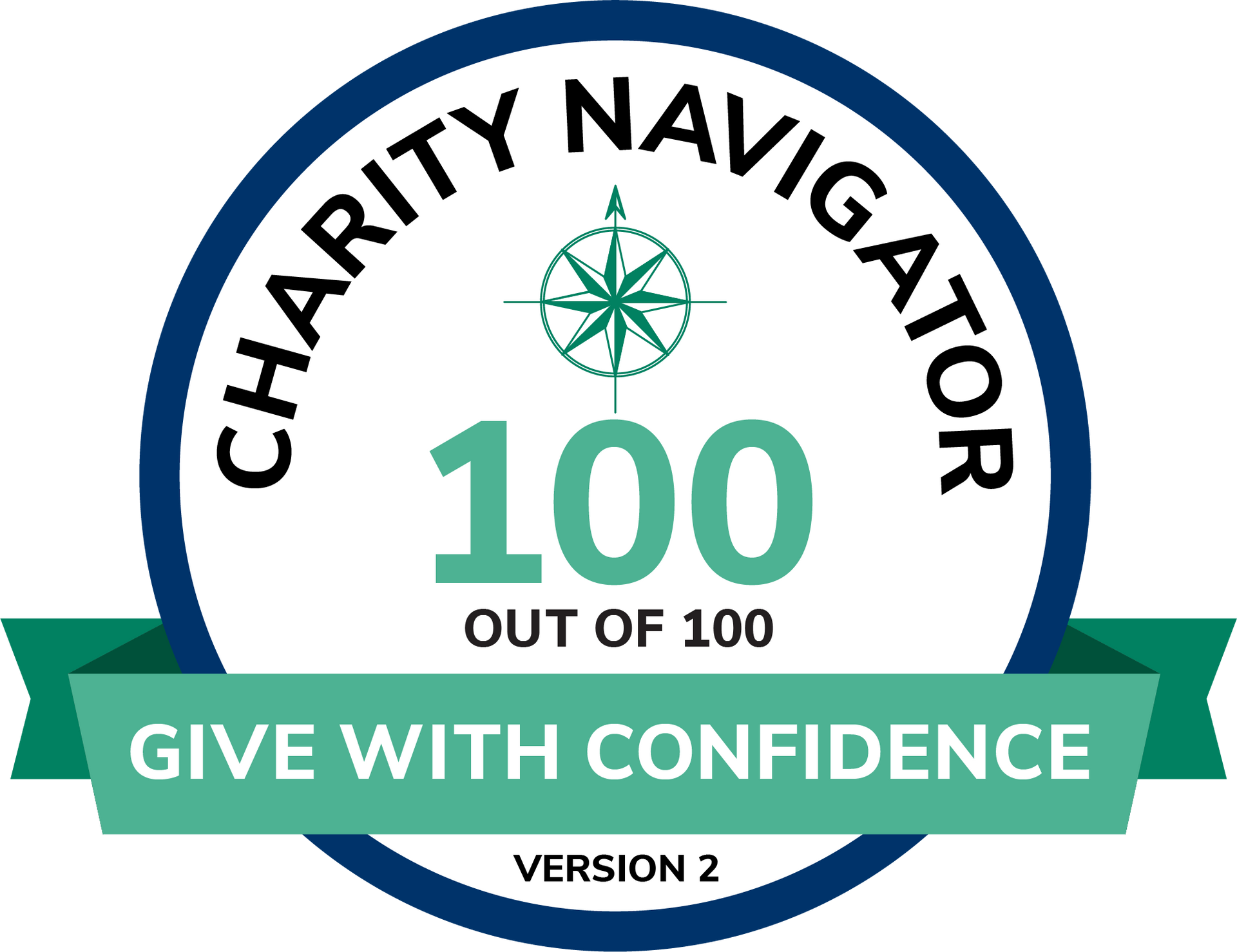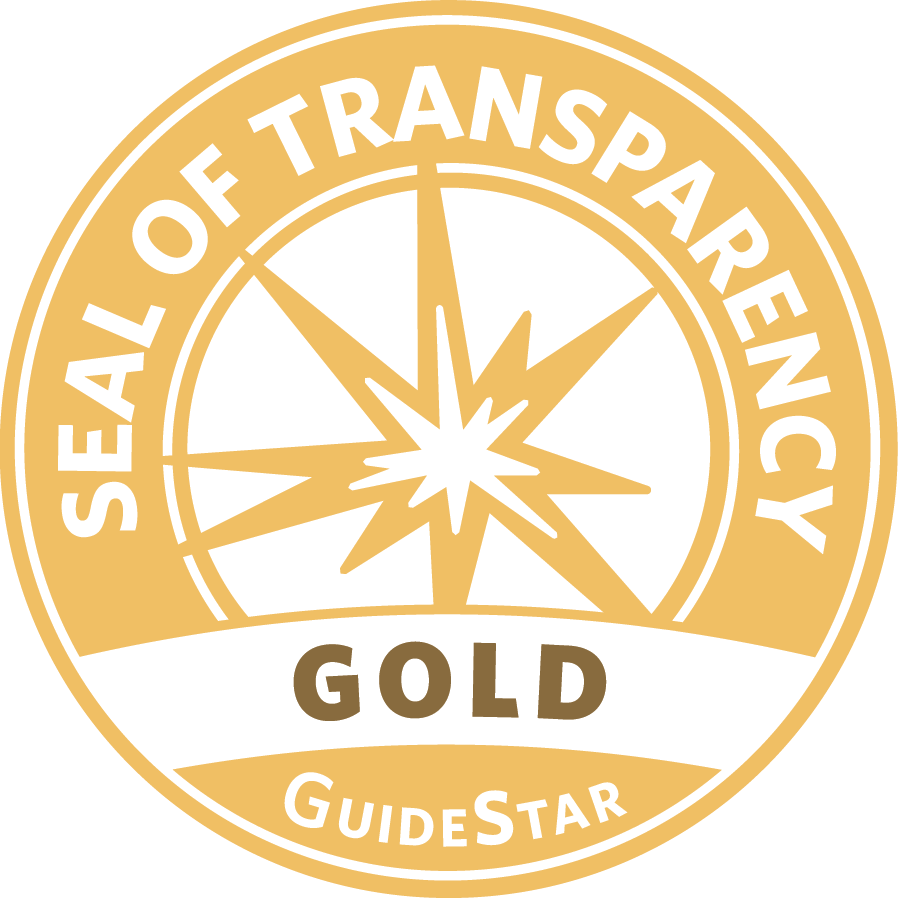Press Release
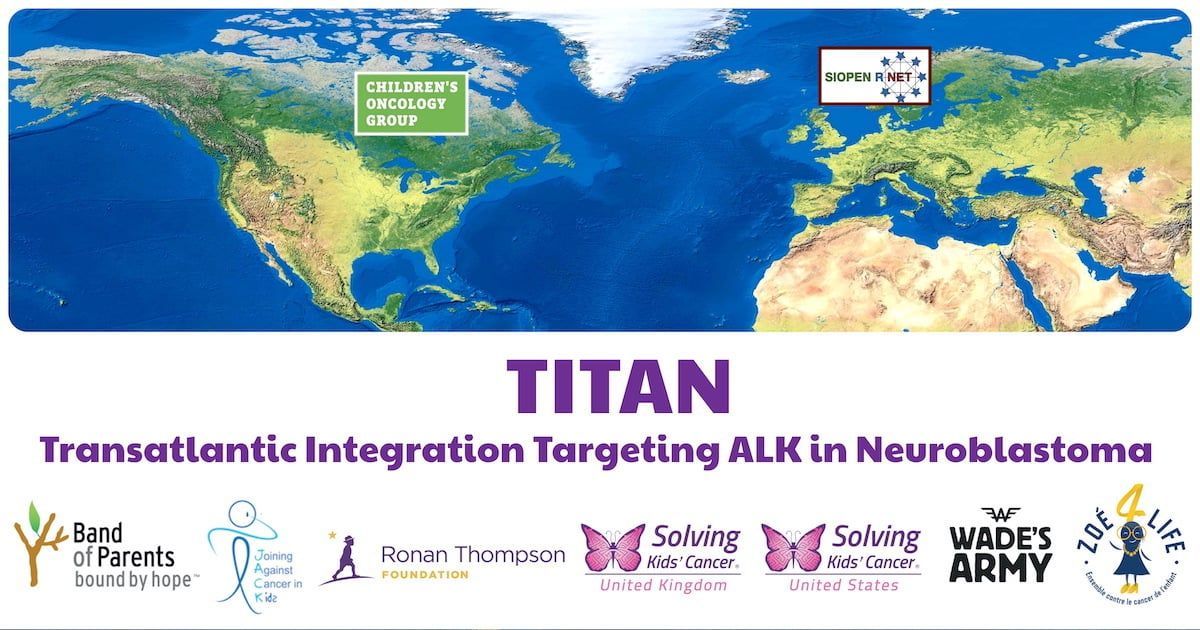
In a landmark in pediatric oncology research, children with high-risk neuroblastoma across Europe and North America will be treated together for the first time, following the award of $1.4M to fund a new transatlantic clinical trial led by Dr. Yael Mossé of Children’s Hospital of Philadelphia and Dr. Dominique Valteau-Couanet of Gustave Roussy in Paris, investigating the ALK inhibitor lorlatinib in the treatment of children with newly diagnosed high-risk neuroblastoma, a deadly childhood cancer that mainly affects children under the age of five. The study, known as TITAN – Transatlantic Integration Targeting ALK in Neuroblastoma – will see a targeted drug introduced to frontline treatment for children, with the hope of dramatically increasing survival rates. This landmark collaboration between the Children’s Oncology Group (COG) in North America and the SIOPEN research network in Europe represents the first time these pediatric consortia on both sides of the Atlantic have worked together to design and run a clinical trial. It is also the first International Neuroblastoma Research Initiative award to be funded under Solving Kids’ Cancer UK’s AMRC-accredited research funding call and follows an extensive and stringent scientific review process. The challenge grant award was driven by collaborative funding from seven parent-led neuroblastoma research charities; Band of Parents , Joining Against Cancer in Kids (J-A-C-K) , Ronan Thompson Foundation , Solving Kids’ Cancer UK , Solving Kids’ Cancer (US) , Wade’s Army and Zoé4life . Scott Kennedy, Executive Director of SKC, said: “We couldn’t be more hopeful. This trial embodies the two most important goals of SKC’s approach – advancing promising new therapies to children, earlier, when they are newly diagnosed and transatlantic collaboration so that the highest number of children can access the trial. We’re thrilled that the largest cooperative trial groups In North America and Europe are collaborating to make this a reality for children and their families.” The new study will be integrated to form part of the ongoing COG and SIOPEN Phase 3 high-risk neuroblastoma trials, and will involve children at Children’s Oncology Group hospitals in North America and SIOPEN institutions across Europe and the UK having their tumors tested for mutations in the ALK gene when they are first diagnosed. Such mutations are found in around 14% of patients and represent a group of children who have inferior survival with current multi-modal treatment regimens. Children whose tumors are found to have ALK mutations will soon be treated with the addition of lorlatinib, a third-generation ALK inhibitor manufactured and supplied by the pharmaceutical company Pfizer. “This is a landmark step in clinical research for children with neuroblastoma,” said Prof Andy Pearson, MD, Chair of the Solving Kids’ Cancer UK Scientific Advisory Board. “With pediatric cancer hugely underfunded in comparison to adult cancer, there is an urgent need for breakthrough treatments for the most difficult-to-cure childhood cancers like neuroblastoma. This trial has the potential to accelerate the discovery of a new treatment and lay the foundation for future collaborations of this nature.” Principal investigators: Dr. Yael Mossé of Children’s Hospital of Philadelphia and Dr. Dominique Valteau-Couanet of Gustave Roussy in Paris. Project partners: Band of Parents , Joining Against Cancer in Kids (J-A-C-K) , Ronan Thompson Foundation , Solving Kids’ Cancer UK , Solving Kids’ Cancer (US) , Wade’s Army and Zoé4life .
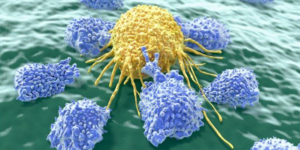
Clinical Trial Harnesses Power of Natural Killer Cells to Treat Neuroblastoma November 13, 2018 New York City— Researchers have made rapid advances in understanding how to manipulate the immune system safely to destroy cancer cells. Adoptive transfer of haploidentical natural killer (NK) cells has shown promise as a treatment option to target and kill cancer cells in a less toxic way than conventional therapies. Now for the first time, scientists will combine NK cell therapy with an immunocytokine to target children with relapsed/refractory neuroblastoma including those with bulky tumors. Solving Kids’ Cancer, The Catherine Elizabeth Blair Memorial Foundation, and Wade’s Army awarded a $136,000 grant to support the novel immunotherapy clinical trial for childhood cancer. Researchers will use a humanized monoclonal antibody linked to IL2, known as hu14.18-IL2, which specifically targets neuroblastoma tumor cells and binds to them, while the IL2 activates NK cells. It is expected that the humanized monoclonal antibody may be more effective at activating the NK cells for killing the cancer cells. Using a novel technique, scientists will collect, expand, and infuse donor NK cells—originating from a parent—into children with neuroblastoma. The phase I clinical trial is now open and currently recruiting children at the American Family Children’s Hospital, part of University of Wisconsin’s Carbone Cancer Center. The trial is led by Kenneth DeSantes, M.D., Division Head and Paul Sondel, M.D., Ph.D, Research Director of Pediatric Hematology, Oncology and Bone Marrow Transplant at the University of Wisconsin. “We believe this novel immunotherapy approach may potentially provide some benefit for children with relapsed or refractory neuroblastoma, whose prognosis has historically been extremely poor despite the use of aggressive chemotherapy regimens. The NK cells utilized in this trial have an enhanced ability to kill tumor targets. We anticipate that the administration of these activated NK cells, given in combination with an immunocytokine that specifically recognizes neuroblastoma, will result in significant anti-cancer activity,” said Dr. DeSantes “Previous research has already shown that adoptive transfer of haploidentical NK cells can be effective in reducing disease without the side effects of graft-versus-host disease,” said Solving Kids’ Cancer Executive Director Scott Kennedy. “We are very excited to support a trial addressing the need for treating children with immunotherapy in this cutting-edge clinical trial because they currently have very toxic treatment options.” For more information about this clinical trial visit https://clinicaltrials.gov Or contact Cancer Connect: 800-622-8922 cancerconnect@uwcarbone.wisc.edu CONTACT: Kristi McKay Solving Kids’ Cancer kristi@solvingkidscancer.org 212-588-6624 Click here for the institutional press release including a video from the researcher. ### About Solving Kids’ Cancer Created by two fathers who lost children to pediatric cancers, Solving Kids’ Cancer is committed to significantly improving the survivorship of the deadliest childhood cancers. One hundred percent of all donations are used to find, fund, and manage clinical trials and scientific programs to rapidly develop the most effective treatments and cures. Solving Kids’ Cancer is a 501 (c) (3) nonprofit charity. To learn more about our work please visit solvingkidscancer.org About The Catherine Elizabeth Blair Memorial Foundation In 2011, Ellen and Tom Blair created The Catherine Elizabeth Blair Memorial Foundation to continue their daughter’s valiant fight against neuroblastoma. Their mission is to support the research and development of new treatments for neuroblastoma, so that one day, families will no longer face the tragedy of losing a child to the disease. To learn more visit blairfoundation.org . About Wade’s Army Wade’s Army is a nonprofit organization standing arm in arm with families at the front lines of the fight against neuroblastoma. Wade’s Army supports research programs and hospitals fighting to find a cure as well as raising funds directly for children and parents affected by childhood cancer. To learn more visit wadesarmy.org
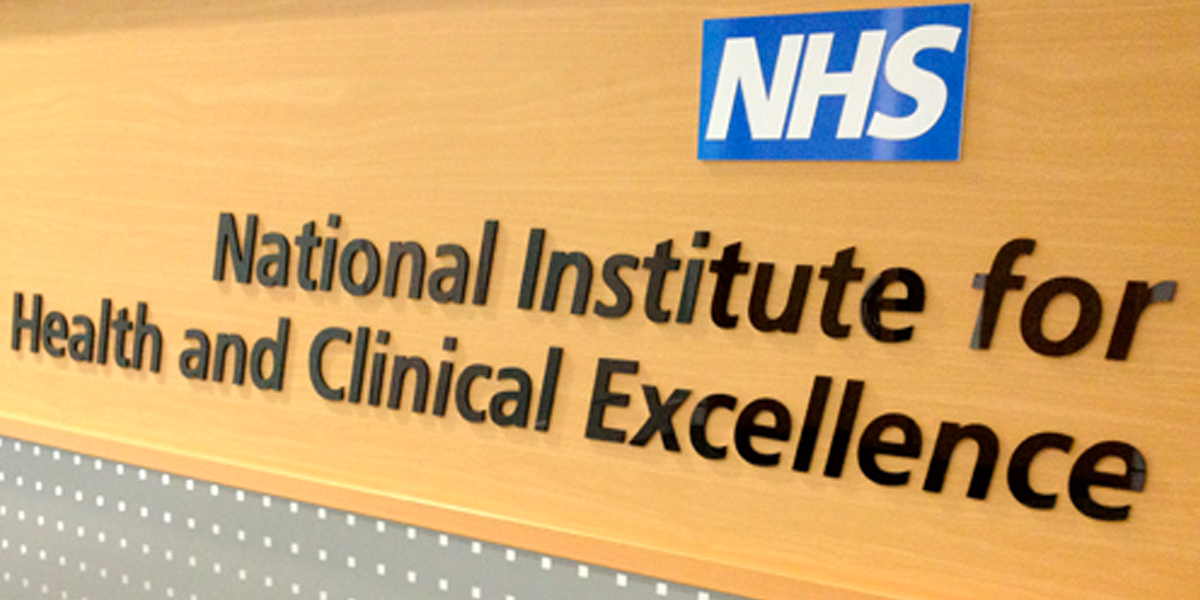
FOR IMMEDIATE RELEASE NICE HEARS APPEAL ON REFUSAL OF CHILDREN’S CANCER TREATMENT First Appeal Against NICE Decision Led by a Charity September 30, 2016 – New York, NY: The National Institute for Health and Care Excellence (NICE) heard an appeal led by Solving Kids’ Cancer (SKC) against its recent decision to deny children in the UK treatment that is proven to significantly increase the chance of survival for children diagnosed with an aggressive childhood cancer, neuroblastoma. This is the first appeal against a NICE decision made by a charity acting alone. Solving Kids’ Cancer, a nonprofit based in New York, teamed up with their partner organization in the UK to lodge an appeal in July 2016 when NICE first announced the decision to refuse funding this potentially life-saving drug in England and Wales. NICE accepted that the charity has valid grounds for appeal and the full hearing was held in Manchester on September 30. The SKC team was made up of both US-based and UK-based parent representatives, all of whom have lost a child to neuroblastoma, and one parent whose daughter survived neuroblastoma as a result of the same treatment NICE is seeking to deny. John Rogers, a scientist and the father of Stella who survived neuroblastoma after receiving this treatment in the US, said: “Dinutuximab, is the only treatment specifically developed to treat cancer in children and is the standard treatment in the US, Australia, and Canada. It has been tested since the mid-1980s and has been proven to significantly improve survival in these children over the long term. If NICE does not accept this appeal, children in the UK could only hope to access unproven treatments through clinical trials, which is unethical when there is an approved and effective drug available.” “In 2009, we raised £250,000 to take our 2-year-old daughter, Stella, to the US for dinutuximab therapy. She is now a happy, healthy 8-year-old. Surely children in the UK have just as much right to this chance of survival as children in other parts of the world?” Solving Kids’ Cancer has five representatives giving evidence, including expert life sciences regulatory lawyer and advocate, Grant Castle. Dr. Castle is a partner in the London office of Covington & Burling LLP, who has provided his services on a pro bono basis, and who presented the charity’s case at the hearing. Speaking before the hearing, Steve Richards, CEO of Solving Kids’ Cancer UK, said: “This is the first time that a charity has made a unilateral appeal against a NICE decision, but we cannot stand by and allow NICE to effectively condemn UK children diagnosed with this devastating illness to a reduced chance of survival. By their own assessment, NICE agrees that dinutuximab is a novel approach that saves the lives of some children and extends the lives of others. By sticking rigidly to very narrow appraisal criteria, NICE failed to account for any of the unique contexts, challenges, and considerations that exist within pediatric oncology. The cost of this treatment for the very small number of children in the UK who could benefit was projected by NICE at just £2m.” “If this decision stands, parents will have to raise in excess of £500,000, as well as enormous reserves of emotional resilience and determination, to take their sick child abroad for the greater chance of survival dinutuximab therapy provides. We are committed to doing everything in our power to ensure that this flawed decision is reversed.” ABOUT SOLVING KIDS’ CANCER Solving Kids’ Cancer is dedicated to significantly improving survivorship of the deadliest childhood cancers. Since 2008, SKC has supported and managed 26 research projects, introducing 18 new treatment options, and validating 14 agents for further use in combination with other drugs. Solving Kids’ Cancer is a 501(c)(3) public charity.. To learn more about their work, visit solvingkidscancer.org ###
